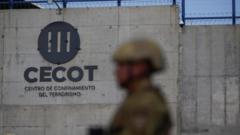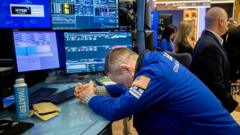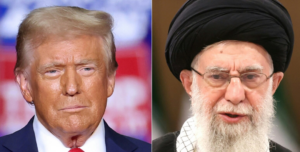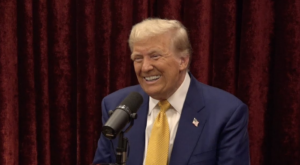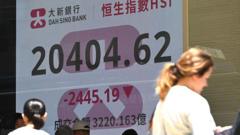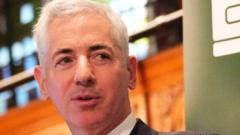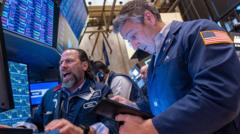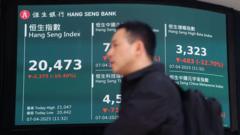Amid falling global markets, President Trump announced potential 50% tariffs on Chinese imports unless Beijing withdraws its countermeasures, reflecting ongoing trade war fears.
Trump Signals Potential 50% Tariffs on Chinese Imports

Trump Signals Potential 50% Tariffs on Chinese Imports
Trump threatens China with steep tariffs if countermeasures are not retracted, escalating trade tensions.
In a bold move signaling ongoing trade war tensions, President Donald Trump warned China of hefty new tariffs on imports into the United States. During a press briefing at the White House on Monday, Trump stated he would impose an additional 50% tariff on Chinese goods unless Beijing rolls back its own counter-tariff measures. This stance was part of a broader declaration that he would not consider pausing existing tariffs as negotiations occur with various nations.
"I'm not looking at pausing tariffs," Trump declared, highlighting ongoing talks with multiple countries. The 50% escalation threat, aimed directly at China, spots a sharp escalation in the already complicated trade dynamics. He stated he expects China to retract its recently announced 34% counter-tariff on U.S. products by Tuesday; otherwise, he would move forward with the new duties.
The president had previously announced a 34% tariff on Chinese imports as part of his "Liberation Day" initiative, which now, combined with existing tariffs, brings the potential tax rate on Chinese goods to a staggering 104%. Trump's warning on social media emphasized that any country retaliating against U.S. tariffs would face even greater penalties, reiterating his hardline stance on trade.
This development emerges amid falling global stock markets, with fears of a trade war between the U.S. and China, which could significantly impact both economies. Stock market headlines indicated sharp declines, with the London FTSE 100 tumbling over 4% and Hong Kong’s Hang Seng index experiencing its largest drop since 1997.
As efforts for tariff negotiations commence, Trump mentioned discussions with Israel's Prime Minister, Benjamin Netanyahu, later that day, and indicated Japan would be sending a delegation to discuss related tariff issues. He also received a proposal for a "zero-for-zero tariff" deal from European Commission President Ursula von der Leyen, suggesting not all countries were aligned in response to U.S. policies. According to Trump, enhanced trade deals would focus on placing "America first" in future international agreements.
This complex situation continues to evolve as global markets react and nations seek effective ways to navigate changing trade landscapes.


